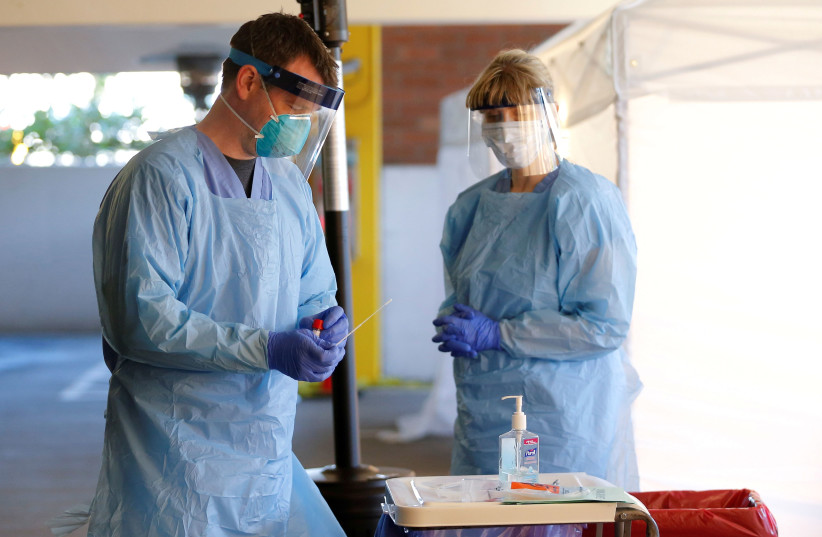In the last two years, it’s been easy to think that Covid-19 is the only disease in the world, but the truth is that there are many viruses circulating among us, and some of them cause no less significant damage. In a new study, researchers compared children hospitalized as a result of coronavirus to children hospitalized as a result of a virus that causes pediatric breathing problems.
According to the findings, the average hospitalization from problems with the resperatory syncytial virus was double that of the coronavirus. "Children with RSV and breathing difficulties needed more medically- and nursing-intensive care compared to children infected with Covid-19," researchers explained.
The study, published in The Journal of Infectious Diseases, found that severe symptoms of RSV caused longer hospitalizations than Covid-19 in infants and young children. Researchers from the University of Cologne in Germany reviewed cases of 748 infants and young children from birth to age four who were hospitalized between March 2020 and November 2021. All children had blood tests done and about 200 of them were found to have positive markers for RSV or Covid-19.
According to the findings, the average hospitalization period due to RSV-related illness lasted about four days, compared with only two days among those infected with the coronavirus who required treatment. Researchers also found that among the group of children hospitalized for RSV, there were higher rates of needing oxygen with a mask (39.6 %) and those who needed intubation (24.3%) compared with the coronavirus group (8.3% and 0%, respectively).
Differences were also found regarding three other parameters. Some 1.8% of those with RSV needed treatment for airway pressure, 10.1% required pediatric intensive care and 1.2% needed artificial respiration. None of the children hospitalized for coronavirus needed any of these treatments.
"According to our findings, symptomatic patients with RSV were more ill than Covid-19 patients, and were hospitalized for significantly longer," the researchers concluded. "Furthermore, patients with infection as a result of RSV required a higher level of intensive medical and nursing care compared to patients infected with Corona.”
By age two, almost every baby will be infected with RSV
Respiratory syncytial virus is a common cause of respiratory diseases in infants up to age two; almost every baby will be infected with this virus. Among preterm infants and infants with severe heart and lung disease, the risk of being severely ill from this virus is higher.
Respiratory diseases can include symptoms such as fever, coughing, sore throat and runny nose. In some cases, increasing shortness of breath may occur, and it might be necessary to provide oxygen. In preterm infants and those with congenital heart disease, kidney damage or immunosuppression, the disease tends to be particularly severe and can result in high mortality.
RSV is the most significant cause of hospitalization of children and bed occupancy during the winter. The long-term effects of RSV are ambiguous but there is evidence of an over-prevalence of asthma, early wheezing and recurrent respiratory infections.
Vaccination against the virus can prevent the disease
"Despite the corona epidemic, diseases caused by the RSV virus still carry a heavier burden in childhood morbidity," explains Dr. Meir Mei-Zahav, chairman of the Israeli Association of Pediatric Pulmonology and director of the Pediatric Asthma Unit at Schneider Medical Center.
While the coronavirus doesn’t yet have vaccines for babies and kids under age five, there are vaccines for RSV, which are given in Israel mainly to the preterm population. The vaccines currently available are "tolerable vaccines" designed to protect preterm infants from contracting this disease. The vaccine is given in the first year or two for premature babies.
Because it’s a passive vaccine that provides antibodies without stimulating the independent immune system, it’s necessary to administer repeat doses during the season when the virus is circulating. A new vaccine has recently been developed that shows high efficacy in preventing RSV in infants and preterm infants born even as early as the 35th week of pregnancy. The vaccine is given in only one dose instead of the five doses administered until now.

